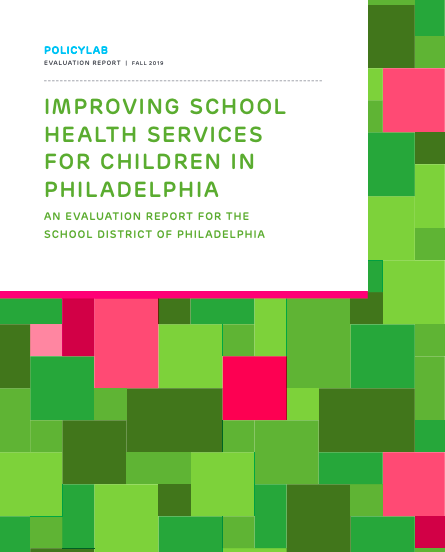Reporting on Philadelphia’s School Health Services in 200 Words
The health of students is critically important to their educational engagement and attainment and can help put them on a path to a successful future. Individuals with more education are likely to live longer, experience better health outcomes, and practice behaviors that promote health, such as obtaining yearly check-ups.
To realize these benefits, students need to be healthy and attend school. Unfortunately, more than 7 million students were chronically absent in 2015-16. That’s 16% of the student population. Although these absences are not solely connected to health care needs, providing both physical and mental health services within schools improves attendance, reduces the likelihood of dropouts and supports academic achievement. For these reasons, many of the nation’s school districts recognize the need to foster education and health within schools, where children can most readily access care.
Philadelphia is one such district, and in 2019, School District of Philadelphia (SDP) leadership approached PolicyLab to commission an evaluation of their school health services to identify areas of success and opportunities for improvement. Throughout our review, it was clear that the district has a strong foundation for school health services and a talented workforce of school health nurses and administrators. You can read more about SDP’s current operations—as well as our recommendations for the advancement of data, technology and the capacity for quality improvement—here.
Shawna Dandridge, LCSW, is a former policy and strategy manager at PolicyLab.
This post is part of our “____ in 200 Words” series. In this series, we tackle issues related to children’s health policy and explain and connect you to resources to help understand them further, all in 200 words. If you have any suggestions for a topic in this series, please send a note to PolicyLab’s Strategic Operations & Communications Director Lauren Walens.

